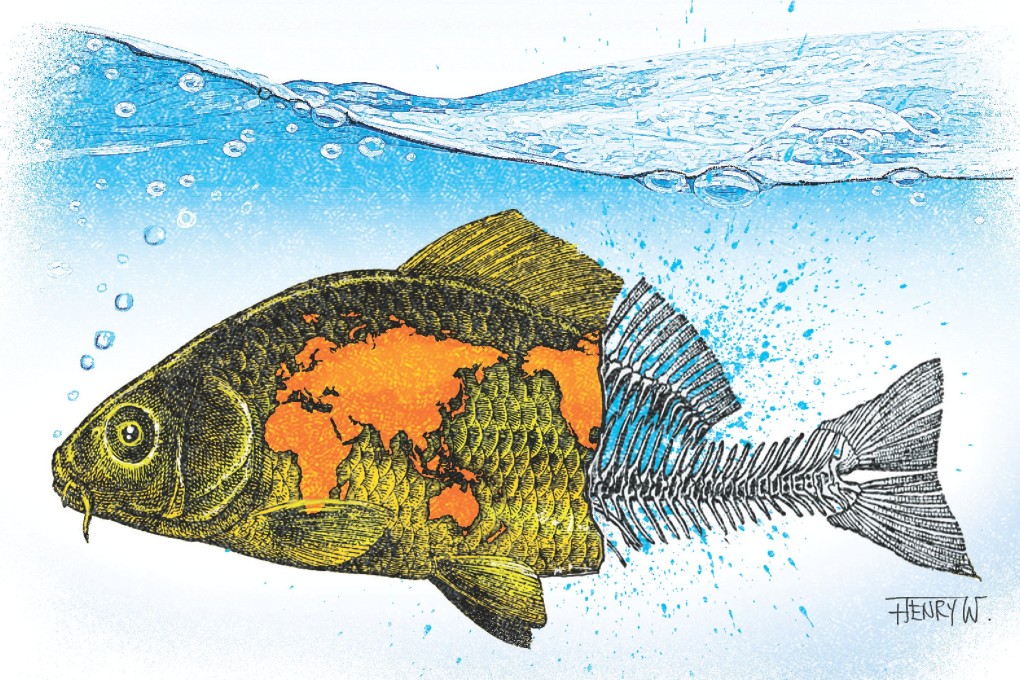Hong Kong can and must help revive our depleting oceans
Victor Chu says despite the grave problem of depleting global fish stocks, rejuvenation is possible, starting with action to cut hefty subsidies and curb illegal fishing

In Hong Kong the sea is all around us, and yet many of us remain unaware or unconcerned about the extent of the threats faced by the global ocean, and the responsibility we all have to address them. As one of the world's major fish trade and processing centres, and one of the top per capita consumers of seafood, Hong Kong's stake in and duty towards the ocean is particularly acute. Threats to the sea are direct threats to our way of life.
Yet we have allowed the health of the ocean to decline dramatically, and today it risks being pushed by human abuse and neglect to the point of collapse, with dire consequences. Every year we learn more about the immense, irreplaceable value of the ocean; how it helps generate the very air we breathe, is bearing the brunt of climate change, and provides millions of people with jobs, transport and, of course, food. But for how long? That is entirely up to us.
Today, the Global Ocean Commission, on which I serve as a commissioner, is publishing its findings. We focus on identifying the principal drivers of ocean decline, and recommending a carefully targeted rescue package that requires coordinated action by governments, business and citizens.
This is not just a rescue package for the ocean; it is a rescue package for the planet, and for humanity. There is no healthy, secure future without a healthy, productive ocean. The recent report of the Intergovernmental Panel on Climate Change warned us of the severity of the impact of climate change on the ocean, and that it is crucially important to maintain a resilient living ocean if we want to mitigate the impact of global climate change.
Marine areas beyond national jurisdiction - or the high seas - make up 64 per cent of the ocean, and it is on these areas, which are currently both overlooked and overexploited, that the commission is shining a spotlight.
Vast as they are, the high seas are falling through the cracks of global governance. Technological advances, for example in fishing gear, mean that widespread abuse of the freedom of the high seas guaranteed under international law is leading to a free-for-all. Weak governance, poor enforcement and a lack of policing mean that, today, the high seas resemble a failed state, where those with the means can squander resources that should benefit everyone.
High-seas fishing is a prime example of this looming tragedy of the commons. Three billion people are dependent on fish for at least 20 per cent of their animal protein, and the growth of the global consumer class combined are putting additional pressure on the ocean. It is therefore alarming that, according to the UN Food and Agriculture Organisation, almost 90 per cent of the world's fish stocks are either exploited, overexploited or have already collapsed.